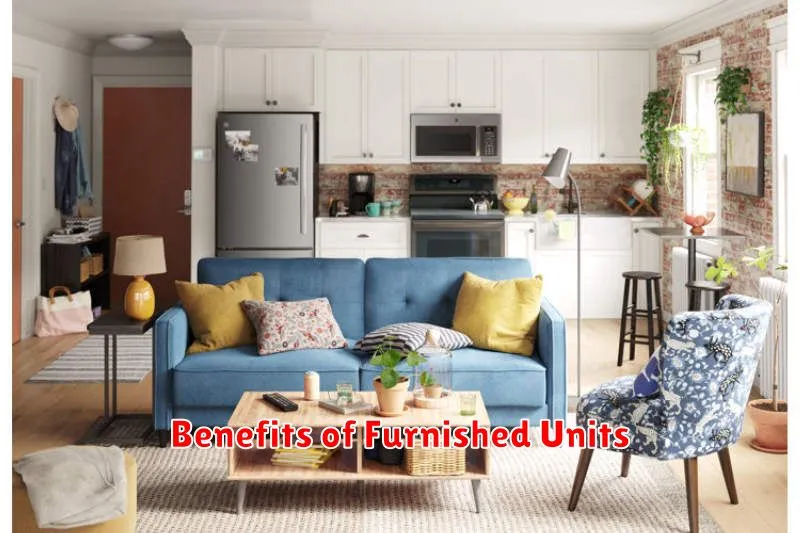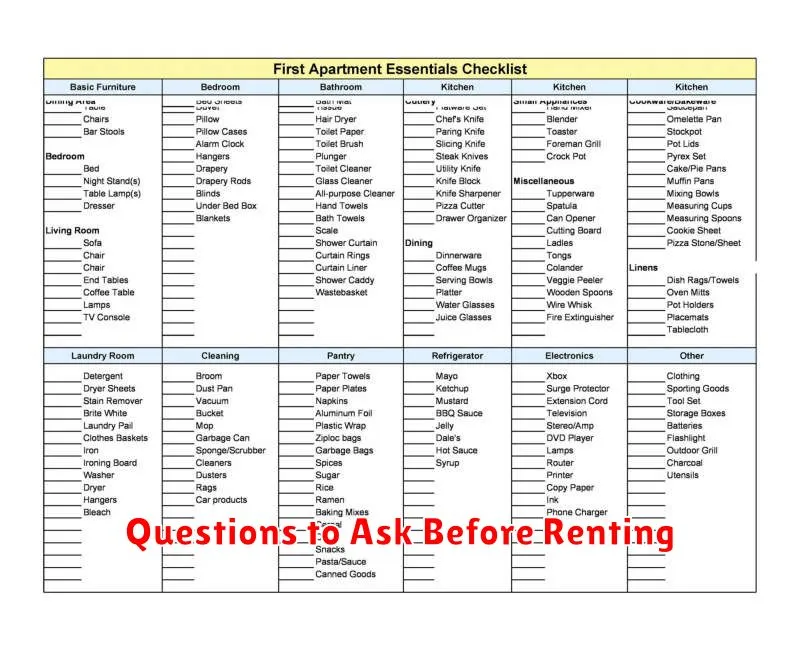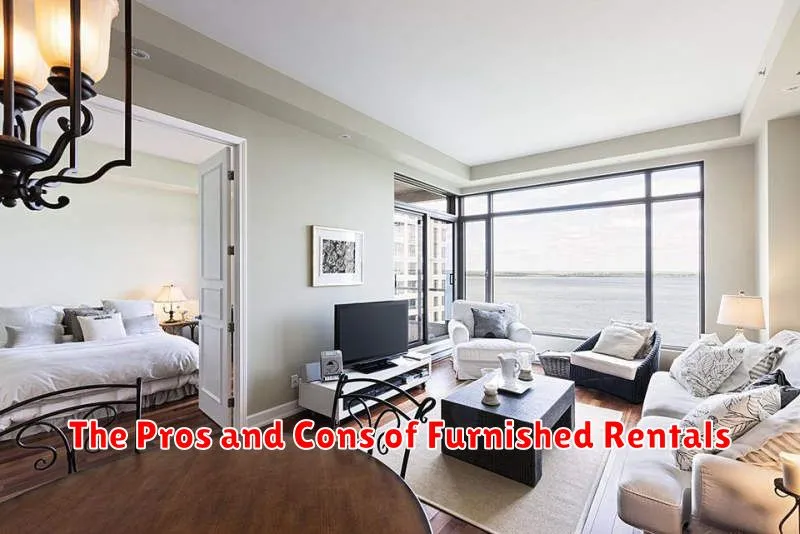Are you considering a furnished rental? Whether you’re a student, a professional on a temporary assignment, or simply seeking a hassle-free move, furnished apartments offer a convenient housing solution. Understanding the pros and cons of furnished rentals is crucial to making an informed decision that aligns with your lifestyle and budget. This article will explore the advantages and disadvantages of choosing a furnished apartment, helping you weigh the benefits of convenience against potential drawbacks. From cost considerations and lease flexibility to limitations on personalization and potential space constraints, we’ll delve into the key factors to consider when deciding if a furnished rental is the right choice for you.
Furnished rentals offer a turnkey living experience, eliminating the need to purchase and transport furniture. This is particularly appealing for those relocating to a new city or seeking short-term accommodations. However, furnished apartments can also come with higher rental costs and limited customization options. By exploring the pros and cons, you can determine whether the convenience of a furnished rental outweighs the potential limitations. This article will provide a comprehensive overview, empowering you to make a well-informed decision regarding your next housing move.
What Is a Furnished Rental?
A furnished rental is a property offered for rent that includes essential furniture and amenities needed for daily living.
This typically includes items such as a bed, sofa, dining table and chairs, basic kitchen appliances like a refrigerator, stove, and microwave, and sometimes even smaller items like cookware, dishes, and linens. The specific items provided can vary significantly depending on the landlord and the rental agreement.
Furnished rentals are often favored by individuals relocating for short-term assignments, students, or those in transition who are not yet ready to purchase their own furniture.
Benefits of Furnished Units

Furnished rentals offer several key advantages, especially for those seeking convenience and short-term housing solutions. They eliminate the cost and hassle of purchasing, moving, and assembling furniture, making them ideal for students, temporary workers, or individuals relocating to a new city.
Moving into a furnished apartment is significantly faster and easier. You can arrive with your personal belongings and settle in immediately. This is particularly beneficial for those with limited time or resources for a traditional move.
Cost savings can also be a factor, especially for short-term stays. While furnished apartments often have higher monthly rent, the upfront costs associated with furnishing an unfurnished unit can be substantial. This makes furnished units a more budget-friendly choice for shorter leases.
Potential Drawbacks to Consider
While furnished rentals offer convenience, potential drawbacks warrant careful consideration. One significant factor is the limited personalization. Renters cannot bring their own furniture, potentially creating a space that feels less like home. This can also be an issue for those with specific stylistic preferences or ergonomic needs.
Higher rental costs are also a common drawback. Landlords often charge a premium for furnished units to cover the cost of furnishing and potential damage. Additionally, inventory can be more limited, making the search for the perfect furnished rental more challenging.
Damage concerns can arise for both renters and landlords. Renters may be held responsible for damage to existing furniture, even normal wear and tear. Landlords must also factor in regular upkeep and replacement of furnishings.
Who Furnished Rentals Are Best For
Furnished rentals cater to a specific niche of renters. They are an excellent option for individuals embracing a mobile lifestyle. This includes students, traveling professionals, and those on temporary work assignments. The convenience of a move-in ready space is highly appealing for those relocating to a new city or country, eliminating the hassle and expense of transporting furniture.
Individuals undertaking short-term leases also benefit significantly from furnished apartments. This can be due to temporary projects, internships, or housing transitions. Furnished rentals offer a flexible and cost-effective solution for these scenarios.
Minimalists and those who prefer a streamlined living experience may also find furnished rentals appealing. The provided furnishings allow for a clutter-free environment without the commitment of owning furniture.
Questions to Ask Before Renting

Before committing to a furnished rental, asking the right questions can save you from future headaches. Clarifying key details upfront ensures the property meets your needs and expectations. Here are some essential questions to consider:
Lease Terms and Costs
What is the lease duration? Are short-term leases available? What are the penalties for breaking the lease? What is the total monthly rent? Are utilities included? If not, which ones are your responsibility? What is the security deposit, and under what conditions is it refundable?
Furnishings and Amenities
What furnishings are included? Can you provide a detailed inventory list? What is the condition of the furniture? Are appliances included (e.g., refrigerator, washer/dryer)? What amenities are available in the building (e.g., gym, parking)?
Property Specifics
What are the pet policies? Are there breed or size restrictions? Is smoking allowed? What are the guest policies? Is there on-site management or a contact person for maintenance issues?

